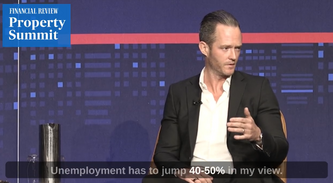User:Harrystein/sandbox/Main Page/feature-dyk
|
The reserve army of labour is a Marxist economic concept denoting a deliberate surplus in the supply of available labour-power created and maintained by the bourgeoisie in order to drive down the wages of the working class. According to this concept, the bourgeoisie exercise their political power to keep employment artificially lower than it would otherwise be, and maintain a large body of unemployed, underemployed or non-proletarianised people who can serve as scabs or strikebreakers in the event of labour unrest. Before the concept came into its own, bourgeois authors writing in the early 19th century mentioned lowering wages by increasing the labour supply. The concept from the standpoint of labour activism was first described in a prototypical form by the Chartist James Bronterre O'Brien in the 1830s, subsequently discussed by Friedrich Engels in The Condition of the Working Class in England, then given its most familiar form by Marx in Capital: A Critique of Political Economy. It was subsequently commented upon and expanded upon by many other economists and political figures, including Karl Kautsky, Eugene V. Debs, Vladimir Lenin, Rosa Luxemburg, Joseph Stalin, and Leon Trotsky. Despite its origins with English Chartism, and its usage by bourgeois economists, it is sometimes treated as a strictly Marxist hypothesis in academic literature. Lenin said that the reserve army of labour are "the workers needed by capitalism for the potential expansion of enterprises, but who can never be regularly employed." |
...that Winston Churchill, Herbert Hoover, and even King Edward VIII of Great Britain were all initially sympathetic towards Hitler?
...that former president Barack Obama's mother was almost certainly connected with US interference in Indonesian politics, possibly working for the CIA? ...in a 1963 memo about the Republic of Cuba, the CIA noted privately that "the large-scale campaigns of murders and terrorism characteristic of the last years of the Batista regime", killing about 20,000 Cubans between 1952 and 1958, "have not occurred during the Castro regime"? Placeholder text: The Soviet mathematical school founded by Kantorovich and the Austrian school exemplified by Mises and Hayek took radically different positions on the feasibility of socialist economic calculation. To a large extent they ignored one another. The Austrian school largely concentrated on criticising Western trained socialist economists like Lange and the Soviet school appears to have ignored Mises completely. Even when the key participants met, the issue was not raised. With the political demise of the USSR, the Austrian school have tended to assume that Mises arguments have been vindicated, but theoretical economic arguments are not finally resolved by politics. Political fashions change. So- cialism, from being politically unpopular in Europe the 1990s, has, since then, been making substantial inroads on another continent. No, one has to bring economic arguments head to head in their own terms. Kantorovich, an absent participant in the Western debate on socialist calculation, is worth paying attention to. |
